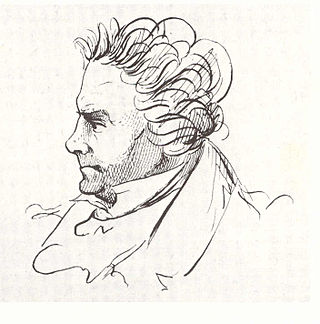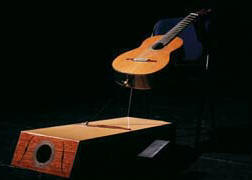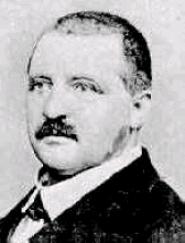
The String Quartet No. 16 in F major, Op. 135, by Ludwig van Beethoven was written in October 1826 and was the last major work he completed. Only the final movement of the Quartet Op. 130, written as a replacement for the Große Fuge, was composed later. The work was premiered by the Schuppanzigh Quartet in March 1828, one year after Beethoven's death.
The String Quartet No. 1 in A minor by Hungarian composer Béla Bartók was completed in 1909. The score is dated January 27 of that year. It is one of six string quartets by Bartok.
Dmitri Shostakovich's String Quartet No. 8 in C minor, Op. 110, was written in three days.

The Juilliard String Quartet is a classical music string quartet founded in 1946 at the Juilliard School in New York by William Schuman. Since its inception, it has been the quartet-in-residence at the Juilliard School. It has received numerous awards, including four Grammys and membership in the National Academy of Recording Arts and Sciences Hall of Fame. In February 2011, the group received the NARAS Lifetime Achievement Award for its outstanding contributions to recorded classical music.

The String Quartet No. 1 in F major, Op. 18, No. 1, was written by Ludwig van Beethoven between 1798 and 1800, published in 1801, dedicated to the Bohemian aristocrat Joseph Franz von Lobkowitz. It is actually the second string quartet that Beethoven composed.
The Del Sol Quartet is a string quartet based in San Francisco, California that was founded in 1992 by violist Charlton Lee.
Dmitri Shostakovich's String Quartet No. 1 in C major, Op. 49, was composed in six weeks during the summer of 1938. It carries no dedication. Shostakovich said that in this quartet he had "visualized childhood scenes, somewhat naïve and bright moods associated with spring."
Sergei Prokofiev's String Quartet No. 1 in B minor, Op. 50 (1931) was commissioned by the Library of Congress. The Quartet was first performed in Washington, D.C., on 25 April 1931 by the Brosa Quartet and in Moscow on 9 October 1931 by the Roth Quartet. The string quartet is in three movements, lasting around 20–25 minutes.

The String Octet in E-flat major, Op. 20, was written by the 16-year-old Felix Mendelssohn during the fall of 1825 and completed on October 15. Written for four violins, two violas, and two cellos, this work created a new chamber music genre. Conrad Wilson summarizes much of its reception ever since: "Its youthful verve, brilliance and perfection make it one of the miracles of nineteenth-century music." This was one of the first works of Mendelssohn to be very well received.

The Brahms guitar, or cello-guitar, is an eight-string guitar with a conventional resonating body, but also an external, box-shaped resonator. Classical guitarist Paul Galbraith, in collaboration with luthier David Rubio, invented the instrument in 1994. David Rubio's protégé, luthier Martin Woodhouse, innovated the design and continues to build Brahms guitars. Galbraith originally conceived it specifically to perform Johannes Brahms' Theme and Variations, Op. 21.

The String Quartet in C minor WAB 111, was composed by Anton Bruckner's in 1862 during his tuition by Otto Kitzler.
The Loewenguth Quartet was a string quartet music ensemble led by the French violinist Alfred Loewenguth. It was particularly famous for performances of classical repertoire such as Beethoven, Mozart and Haydn quartets, and was active from the 1930s to the 1970s.
Johannes Brahms' String Quartet No. 1 in C minor and String Quartet No. 2 in A minor were completed in Tutzing, Bavaria, during the summer of 1873, and published together that autumn as Op. 51. They are dedicated to his friend Theodor Billroth. He only published one other string quartet, No. 3 in B-flat Major, in 1876.
The String Quartet in B minor, Op. 11 was written in 1935–36 by Samuel Barber. Barber arranged the middle movement for string orchestra as his well-known Adagio for Strings in 1936. Barber continued to revise the piece, particularly the finale, until 1943.
- Molto allegro e appassionato
- Molto adagio [attacca]
- Molto allegro

The Pražák Quartet is a Czech string quartet established in 1974. It is one of the Czech Republic's premiere chamber ensembles. It was founded while its members were still students at Prague Conservatory (1974–1978). The quartet was awarded First Prize at the Evian International Competition in 1978 and the Prague Spring Festival Prize in 1979 with second places not being awarded at both the competitions to indicate the difference in level.
The Schuppanzigh Quartet was a string quartet formed in Vienna in the 1790s by the violinist Ignaz Schuppanzigh. It continued, with breaks and changes of members, for many years. Schuppanzigh was a close friend and admirer of Ludwig van Beethoven, and the quartet gave the first performances of many of Beethoven's string quartets.

The Intermezzo in D minor is an 1879 composition by the Austrian composer Anton Bruckner. Although it was intended to replace the scherzo of the String Quintet, that piece was instead performed in its original form; the Intermezzo was not publicly premiered until after the composer's death.

The String Quartet No. 2 in G major, Op. 22, No. 2, is a chamber music work by the Romanian composer George Enescu, composed mainly between 1950 and 1951, though it has a lengthy pre-history and received a number of revisions in 1952 and possibly early 1953. The score is dedicated to the American pianist, composer, and arts patron, Elizabeth Sprague Coolidge. A performance of it lasts about 25 minutes.
The Hugo Wolf Quartet is an Austrian string quartet ensemble.
Eva Ruth Spalding was a British composer who wrote string quartets and piano music, and set texts by many poets to music.